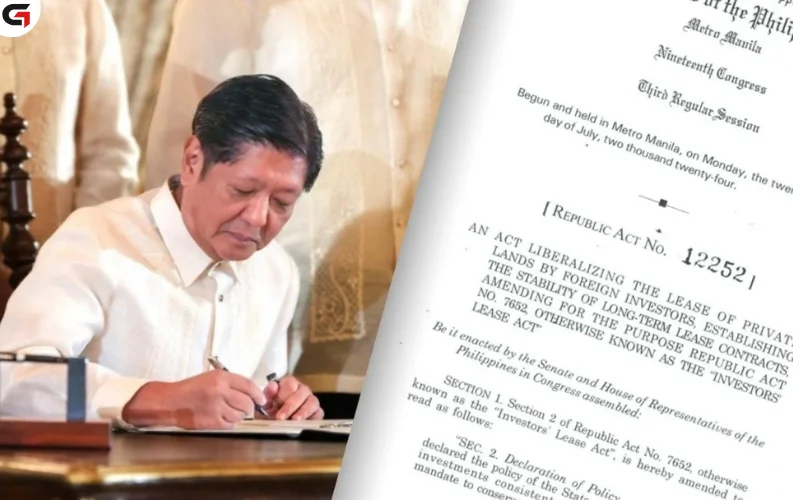Manila — The Philippines has ratified a historic step permitting foreign investors to lease land up to 99 years, well above the existing limit, as the government makes efforts to secure long-term capital into mainstays of the economy.
President Ferdinand Marcos Jr. signed the law this week, revamping the 1993 Foreign Investment Act, which had earlier set a limit at 50 years, renewable for another 25 years. The period of extension is intended to lure investors to construct industrial parks, factories, tourism complexes, and agriculture projects throughout the archipelago.
Experts describe the move as making the nation more regionally competitive. "This will unlock an enormous volume of foreign investment capital," said David Leechiu, managing director of Leechiu Property Consultants. He continued that the longer duration of contracts will benefit projects such as hotels, which take longer periods of time to cover expenses, and would improve tourism revenues.
Foreign direct investment in the Philippines fell 26.9% to $3 billion from January to May, a central bank report showed, reinforcing the need for reforms. Its neighbors, like Thailand, are generally perceived as more desirable places on account of better infrastructure, so lease liberalisation is an imperative for Manila.
The new legislation grants the president leeway to cut lease terms for industries that are linked to national security or key infrastructure. The law was enacted along with another overhaul that brings in a profit-based tax system for major mining operations, a move that officials claim will enhance state revenues without deterring new investment.
With longer leases now available, policymakers expect the Philippines to secure a stronger position in the competition for Southeast Asia's flows of investments, balancing growth aspirations with protection for national interests.




















